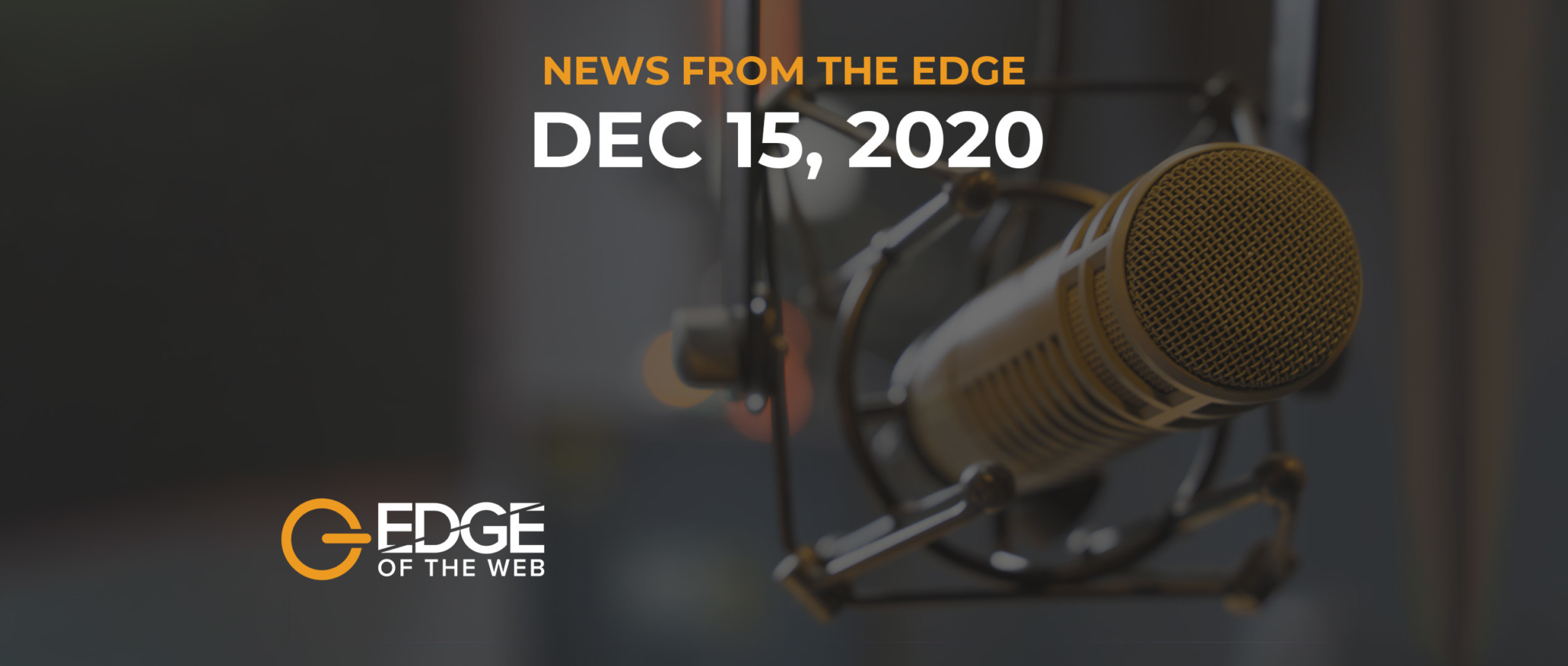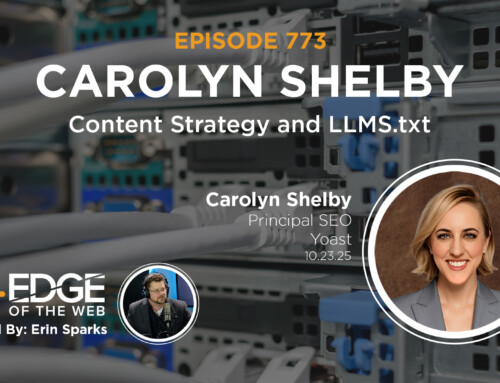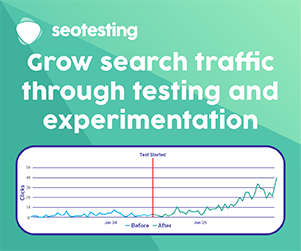Each week on the EDGE of the Web we invite an industry insider to talk about some of the latest digital marketing news headlines. This week host Erin Sparks and Creative Studio Producer Jacob Mann along with special guest Mordy Oberstein, Wix’s SEO Liaison. Here’s this week’s news roundup from the award-winning EDGE of the Web podcast:
Google’s December 2020 core update was big, even bigger than May 2020, say data providers
From Barry Schwartz on Search Engine Land we learn that Google’s December 2020 core update was big, even bigger than May 2020, say data providers. The rollout of the latest Google core update happened on December 3, and the impacts really started showing up on December 4. As usual, some sites were impacted negatively while others were impacted positively.
- Erin Sparks: There’s been a good swing in volatility, and it does often take a week or two for the update to fully roll out in order to see the full impacts. This was a very broad global update, not confined to any particular sector or region or country. Lots of chatter out there about this one.
- Mordy Oberstein: Normally with this kind of broad update the majority of volatility is seen in niches like health and finance, but there was a surprisingly big spik in volatility for retail sites. It also came in two waves, which saw some strange reversals from the first wave to the second wave of the update. Sites were seeing huge rises in traffic one day and then a huge downswing the next day, and this was happening over the course of several days.
- Erin Sparks: There wasn’t a ton of rhyme or reason to the “winners” and “losers,” though some of the bigger losers were YMYO sites related to nutrition, medicine, and health.
- Mordy Oberstein: Then again, some of the YMYO sites made significant gains relative to the dot-gov and dot-edu sites like the CDC that were dominating during much of the pandemic. And those hyper-authoritative sites are still way ahead of the others.
Google on Penalizing Misinformation
A controversial topic recently explored by Roger Montti on Search Engine Journal was Google on Penalizing Misinformation. If misinformation in search results is as bad or worse than spam (think medical search results related to COVID vaccines and so on), should Google more proactively penalize offending sites? Google’s Danny Sullivan weighed in.
- Erin Sparks: The article presents a kind of blow-by-blow exchange of views between SEO and search marketing practitioner Joe Hall and Google’s Danny Sullivan. Joe called Google out saying they ought to treat misinformation, especially medical misinformation related to the pandemic, every bit as harshly as they treat spam sites.
- Mordy Oberstein: Joe Hall had previously called out Google around issues related to their lack of transparency around core updates. It’s like when antisemitic stuff was coming up in Google Image search results some months back and many of us were pretty upset about it, Danny’s response was that Google is not in the business of determining what’s true and not true. And while I have to say I understand that argument—do we really want Google being the ultimate judge of truth? So, I get that. And while I was among those calling for the content to be taken down, if you step back and look at it from a broader perspective, it’s not that simple. It’s complicated.
- Erin Sparks: Right. It’s complicated because we’re trying to figure out to what extent we want to empower these vehicles of information to control what information is shown and not shown. Is it their role to remove content? Should they instead be tagging content rather than removing it? How far do we want them to go? It’s a very slippery slope.
- Mordy Oberstein: And even tagging of content, like Twitter does, still raises the same issues, right? If you’re the one with content being tagged, you’re going to be upset about it if you believe it to be true. It’s still that platform putting their thumbprint on the issue. And it might be okay for that to happen on social media, because social media is different from search. Search is about finding information, so what the search engines aim for is showing the maximum amount of information related to the query. That some of it may or may not be true or might be distasteful is just how it goes. And maybe some of the onus is on users to not just accept everything they see.
- Erin Sparks: Users have to have some ownership. You can’t expect the platform to entirely police content. Nor should you want them to because then someone is not going to be treated fairly. And we also have to say kudos to both Joe Hall and Google because these conversations didn’t even happen ten years ago. So at least the conversations are happening.
Even as more people shop online, searches for ‘available near me’ up over 100% vs. last year
As reported by Greg Sterling on Search Engine Land, Even as more people shop online, searches for ‘available near me’ up over 100% vs. last year. Even as the pandemic keeps many people home and shopping online, “available near me” searches have nearly doubled in volume compared to last year. There are lots of things local stores can do to survive.
- Erin Sparks: The ecommerce numbers have received a huge spike thanks to the pandemic forcing more people to shop online than ever before. And some of that is going to stick even after the pandemic.
- Mordy Oberstein: It’s interesting to see why those “available near me” kinds of searches are so huge, and it’s because a lot of people are still going out to stores in spite of the pandemic, but the way they’re doing it is different. They want to know ahead of time if the store has the items in stock they want to purchase (real-time inventory data), they want to know if they can do curb-side pickup, they want to be able to consolidate multiple stores in one trip, and so on. People are still going to local stores, they just want to be much more precise about it during the pandemic. And what it shows is the kind of perfect meshing together that can happen between online and brick-and-mortar if a store has the site and systems set up so customers can check everything out online before making the visit.
- Erin Sparks: It’s the reality of how people want to try to stay safe and still get the stuff they want to buy locally.
Connect with Mordy Oberstein, Wix’s SEO Liaison
Twitter: @MordyOberstein (https://twitter.com/MordyOberstein)
LinkedIn: https://www.linkedin.com/in/mordy-oberstein-12551715/
Website: https://www.mordyoberstein.com
Wix: https://www.wix.com



 –>
–>


















